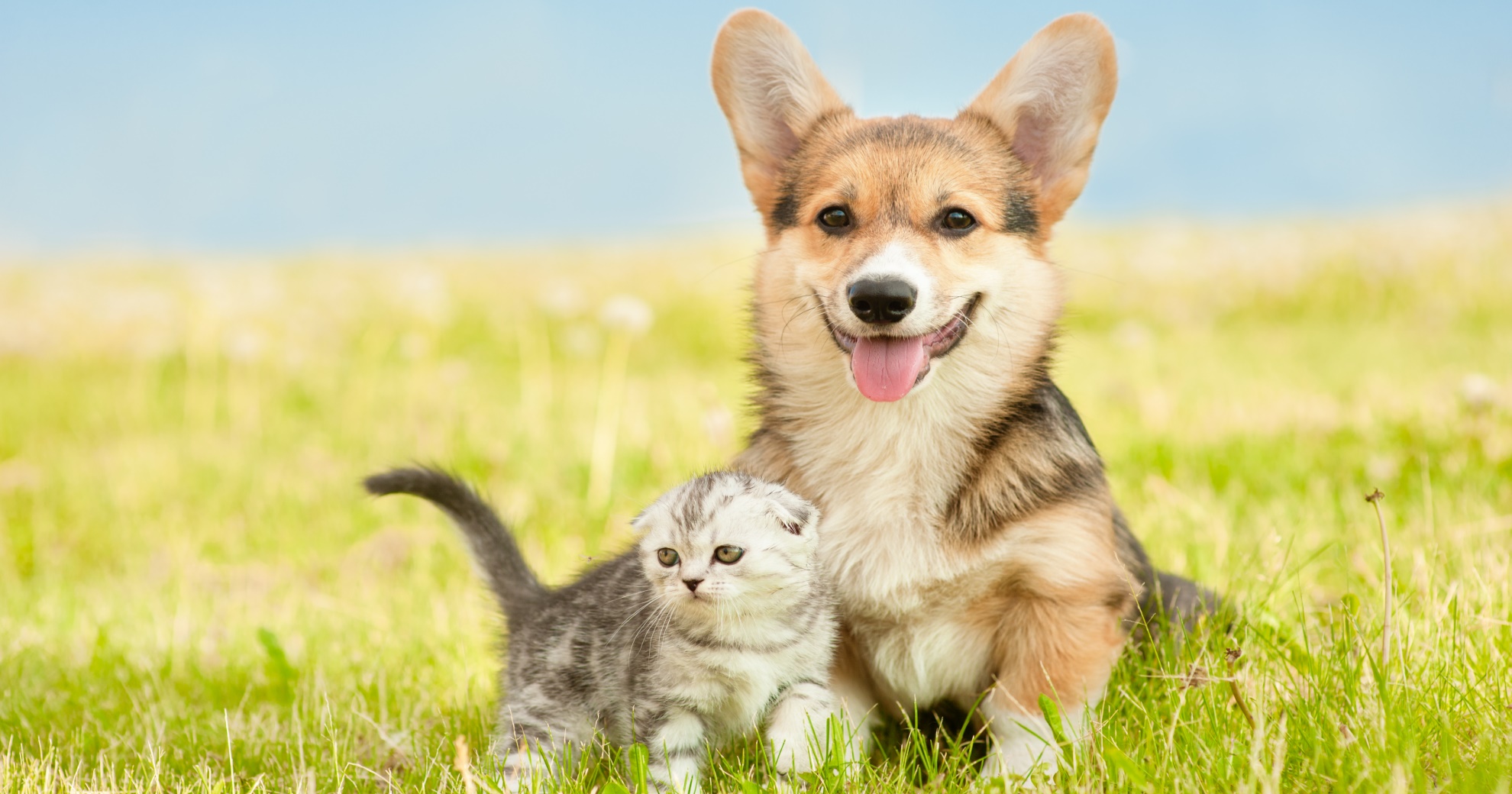HEALTH & WELLNESS

TRENDING

SIGN UP and Start Receiving
Our Monthly Newsletter,
The Chronicles
How To Care For A New Puppy Or Kitten

Welcoming your newly adopted fur bundle into the home is always an exciting moment. While caring for a new puppy or kitten is a big responsibility, it’s also a lot of fun.
Here are some essential tips on doing the best for your new furry friend:
1. Provide a safe and comfortable home:
Choose a quiet and secure place for your pet to sleep and rest.
Make sure your home is hazard-free by placing poisonous plants, electrical cords, and objects that could be swallowed out of reach.
These are some ideas for providing your new puppy or kitten with excellent housing:
- A crate makes a great den for your puppy or kitten offering a safe and secure place to sleep and rest. Potty training can also be started here.
- A playpen is a safe and enclosed space to play. These are helpful if your home is large or for keeping your pet away from certain areas.
- Cat trees provide kittens with climbing, scratching, and perching spots while helping to prevent them from tearing up the furniture.
- Toys to keep them entertained because puppies and kittens need plenty of distractions.
- A harness and leash are essential for training your puppy.
- Trim your puppy or kitten’s nails regularly to prevent overgrowth and discomfort.
- A dog bed is a comfortable place to sleep and rest.
- Every cat owner should have a litter box. Keep it in a quiet and easily accessible place.
- Food and water bowls should be made of a strong material that is easy to clean.
2. Feeding schedules:
Feed your puppy or kitten appropriate, high-quality food suited to their age and breed.
- A feeding routine is essential for healthy growth and development. Puppies generally need feeding more frequently than kittens, and smaller breeds eat more often than larger breeds.
- Your veterinarian will help you set a suitable feeding schedule for your kitten or puppy according to their breed, age, and activity level.
- Select regular mealtimes and adhere to them. This helps your puppy or kitten set their inner feeding clock which reduces begging or untimely hunger.
- Fresh water must always be available.
- A distraction-free area will help set your pet’s feeding routine and prevent messy eating habits.
- Always measure the food portions and provide the correct amount. Overfeeding and underfeeding can cause obesity or malnutrition.
- Select high-quality puppy or kitten food formulated for their age and developmental stage. Your veterinarian will give specific recommendations based on an individual pet’s needs.
- Keep an eye on your puppy or kitten’s eating habits to make sure they remain regular. Any drastic changes should be reported to your veterinarian.
- Free-choice feeding is convenient but can lead to overfeeding and obesity. A structured feeding schedule with set mealtimes is the best option.
- Changing from “baby” food to adult food should happen gradually over a week or two to avoid upsetting their digestion.
- Giving your puppy or kitten table scraps or human food is a no-no. Such meals can disrupt a pet’s digestive system and often lead to unhealthy eating habits.
3. Housetraining should begin early:
Immediately after waking up, puppies should be taken outside to relieve themselves. This also applies to after mealtimes and before bedtime.
Instinctively hygienic, kittens will use a litter box, but you may need to show them where it is and how to use it.
Praise and treat your puppy or kitten when they follow the toilet rules you are teaching them.
4. Socialising your pet:
Expose your puppy or kitten to different people, animals, and experiences from a young age to help them become well-socialised.
Enroll your puppy in obedience classes to learn basic commands.
5. Veterinary services
Your puppy or kitten should see the veterinarian for a check-up as soon as possible after adoption.
Always keep up to date on pet vaccinations.
Unless you intend to breed your pet, have them spayed or neutered.
Additional tips
- Provide plenty of exercise
- Show your pet love and attention
- Be patient
- Don’t punish but use positive reinforcement
- Be consistent with your rules and expectations
Most important of all: Enjoy sharing a lifetime of memories with your new furry friend.
Related Articles











